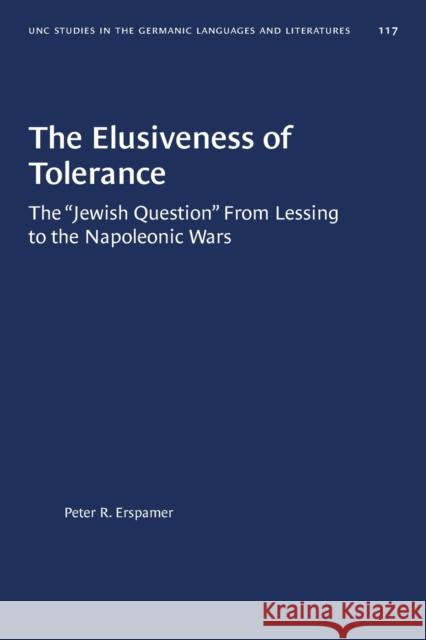The Elusiveness of Tolerance: The Jewish Question From Lessing to the Napoleonic Wars » książka
The Elusiveness of Tolerance: The Jewish Question From Lessing to the Napoleonic Wars
ISBN-13: 9781469614649 / Angielski / Miękka / 2014 / 208 str.
Peter Erspamer explores the 'Jewish question' in German literature from Lessing's Nathan der Weise in 1779 to Sessa's Unser Verkehr in 1815. He analyzes the transition from an enlightened emancipatory literature advocating tolerance in the late eighteenth century to an anti-Semitic literature with nationalistic overtones in the early nineteenth century. Erspamer examines Nathan in light of Lessing's attempts to distance himself from the excesses of his own Christian in-group through pariah identification, using an idealized member of an out-group religion as a vehicle to attack the dominant religion. He also focuses on other leading advocates of tolerance and explores changes in Jewish identity, particularly the division of German Jewry into orthodox Jews, adherents of the Haskalah, and converted Jews. The tolerance discourse ended with the Napoleonic incursions into Germany, when nationalism was on the rise and Judaism came to be viewed in racial as well as religious terms.











